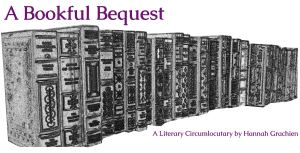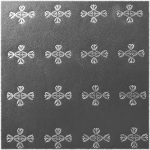
Willa Cather says something interesting about memories in the final sentences of My Antonia (1918):
I had the sense of coming home to myself, and of having found out what a little circle man’s experience is. For Antonia and for me, this had been the road of Destiny; had taken us to those early accidents of fortune which predetermined for us all that we can ever be. Now I understood that the same road was to bring us together again. Whatever we had missed, we possessed together the precious, the incommunicable past.
Though clearly a point of tension resolved in this passage is the connection between the narrator and Antonia – that, though they don’t marry and may not see one another, they are together in what they share – what interests me about it is that the reassurance the narrator speaks of is provided by having a past. Without the “early accidents of fortune” the narrator would not possess something “precious” and would not have “come home” to himself. If you don’t have a past that you can acknowledge and hold precious – even, I would say, if you hold it precious for what you’ve had to disavow, for what you’ve learned the hard way – then you cannot have a home in yourself. Surely that is a kind of death in life, for if your soul doesn’t live in yourself, can it truly live somehow somewhere else? It seems to me not.
When you do not acknowledge your own past – i.e., if Cather’s accidents of fortune are instead mere accidents – you live in a state of disconnect. To be alive and to be human, you must feel some satisfaction, some sense that you have something to offer, not a mere skill, but something that is all your own, affection, for instance. A pretty basic aspect of human existence is that one’s love is worth something. It’s not dehumanizing to find one’s love set aside by another at some point in life, but it’s something else entirely to find it worthless in essence. To live always in the present is to assume one has no enduring worth to anyone else. It’s a sterile existence where growth is impossible, and not just growth, I think, but also redemption. If you do not have a past, then you cannot be redeemed, for redemption is to make the past worth something. And without redemption, one cannot be good. So one with no past is dead in life; the dead themselves, however, have nothing but a past – no present and no future. Whether or not there is meaning or goodness there, it is finite.
Does this journal validate or redeem a past I had abjured? When I was young I wrote a poem – I can recall little of it, though I’m pretty sure it was rather a bad poem, certainly unskilled – in which the line that meant the most to me, whose repudiation seemed in fact a kind of life’s mission, was “I … am mute.” In this journal, in this resurrection of voice, in this taking up once more of a duty to self, in this bridge to the past, do I now abjure that former state – voiceless, as the doomed man in Poe’s “The Cask of Amontillado” – walled in, encased, casked?
Quinsy – inflammation of the tonsils
Hartshorn – antler of a hart, formerly used as a source of ammonia (ammonium carbonate)

What is A Bookful Bequest? Read about Hannah Grachien’s Literary Circumlocutary
Coming soon: Stephen Crane’s The Red Badge of Courage
